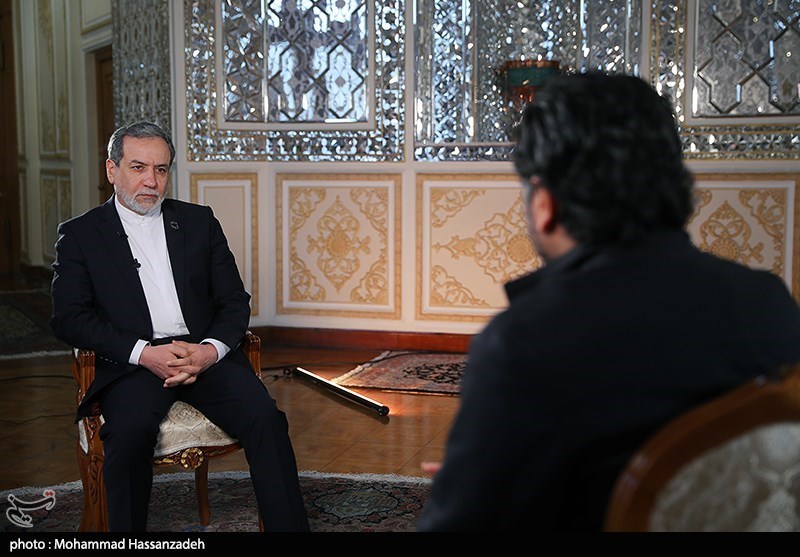In an interview with Tasnim, Araqchi said the likelihood of a fresh round of negotiations on Iran’s nuclear program and the removal of sanctions on Tehran will depend on how prepared the other side will be, as US President-elect Donald Trump is going to take office in weeks.
Iran has never ignored the option of negotiations, the foreign minister stated, adding that the main principle is that the negotiations need to be held in a dignified and fair manner, respect the rights of the Iranian people, and observe Iran’s red lines.
Any fresh negotiations should not be a waste of time, not be held for another round of negotiations, and not turn into a process of attrition either, he said.
Iran has never left the negotiating table since it has always been confident about the peaceful nature of its nuclear program, Araqchi added.
The foreign minister said Iran’s consistent stance, according to which the Joint Comprehensive Plan of Action (JCPOA) was negotiated, has been negotiations that would build trust on Tehran’s nuclear program in exchange for the removal of sanctions.
He reminded the other sides that force, pressures and sanctions against Iran will get nowhere, adding, “The more they impose sanctions and pressures on Iran, the more Iran will show resistance.”
Araqchi noted that the US policy of maximum pressure on Iran, adopted by Trump during his first term, encountered maximum resistance from Tehran.
“If they (the US) take that same path (of pressures) again now, our response will conform to that path too. But if they opt for the course of fair, just and dignified negotiations and speak with the language of respect, we will speak that language as well and pursue the path leading to the fulfillment of the interests of Iranian people.”
“If the other side does not approve of this path, it is natural for us to continue on our own way, just as we have done over the past few years and will continue to do now,” he continued.
The foreign minister stressed that Iran’s nuclear program is entirely peaceful, and that the country does not impose any limitations on itself within the framework of peaceful purposes.
“We operate within that scope. Those who have concerns are welcome to come forward so we can discuss and negotiate to address their worries.”
Elsewhere in his remarks, the Iranian top diplomat hailed the country’s defense power and missile capabilities and said diplomacy operates based on power.
“I have said many times and firmly believe that if it weren’t for our missile capabilities, no one would be negotiating with us. If they could destroy our nuclear facilities with a military strike, why would they bother sitting down with us for over two years to negotiate? Why would the US secretary of state or the foreign ministers of the G5+1 gather for 18 days to reach an agreement? The reason is that they did not have the capability to militarily eliminate our facilities. Our armed forces had established this capability through missiles that served a deterrent purpose.”
He added, “Our ability to respond in kind essentially acted as a protective shield for our nuclear facilities, which was created by our missiles and our overall defensive capabilities.”
He was also asked about the resistance front and its future in light of recent developments.
Araqchi said the school of resistance is not a phenomenon that can simply vanish with a single blow and become a part of history.
“It is a completely just, justice-seeking, and rights-demanding ideal. It embodies the struggle and resistance against domination and occupation, and it is a light that cannot be extinguished. While it may experience ups and downs depending on the time and circumstances, and endure significant setbacks—of which there have been many in the past—I have often reiterated that the martyrdom of (former Hezbollah Secretary General) Sayyed Hassan Nasrallah was a tremendous loss. However, this is not the first time Hezbollah has lost its leader; they have faced this before and managed to revive themselves, returning even stronger to the scene. They have sustained injuries this time as well, but their social base and forces remain intact. That school, that ideal, and that ideology are still very much alive, and they inherently possess the potential for growth and revival.”
He referred to the Palestinian cause as an example, saying that for 80 years the Zionist regime, with the support of the Americans and others, has been bombing, committing massacres, and imposing sieges, causing hunger and creating poverty, bringing all kinds of calamities upon the Palestinian people.
“But has the Palestinian cause been forgotten? Some have even pushed it towards compromise, reconciliation, and surrender, but this cause has not been extinguished, and the Palestinian people continue to pursue their right to self-determination.”
